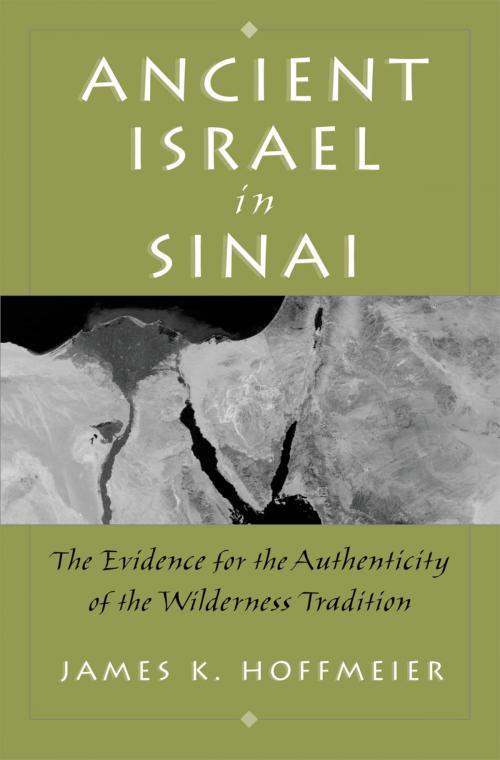Ancient Israel in Sinai
The Evidence for the Authenticity of the Wilderness Tradition
Nonfiction, Religion & Spirituality, Reference, Antiquities & Archaeology, Judaism, Bible & Bible Studies, Bibles| Author: | James K. Hoffmeier | ISBN: | 9780199882601 |
| Publisher: | Oxford University Press | Publication: | October 6, 2005 |
| Imprint: | Oxford University Press | Language: | English |
| Author: | James K. Hoffmeier |
| ISBN: | 9780199882601 |
| Publisher: | Oxford University Press |
| Publication: | October 6, 2005 |
| Imprint: | Oxford University Press |
| Language: | English |
In his pathbreaking Israel in Egypt James K. Hoffmeier sought to refute the claims of scholars who doubt the historical accuracy of the biblical account of the Israelite sojourn in Egypt. Analyzing a wealth of textual, archaeological, and geographical evidence, he put forth a thorough defense of the biblical tradition. Hoffmeier now turns his attention to the Wilderness narratives of Exodus, Leviticus, and Numbers. As director of the North Sinai Archaeological Project, Hoffmeier has led several excavations that have uncovered important new evidence supporting the Wilderness narratives, including a major New Kingdom fort at Tell el-Borg that was occupied during the Israelite exodus. Hoffmeier employs these archaeological findings to shed new light on the route of the exodus from Egypt. He also investigates the location of Mount Sinai, and offers a rebuttal to those who have sought to locate it in northern Arabia and not in the Sinai peninsula as traditionally thought. Hoffmeier addresses how and when the Israelites could have lived in Sinai, as well as whether it would have been possible for Moses to write down the law received at Mount Sinai. Building on the new evidence for the Israelite sojourn in Egypt, Hoffmeier explores the Egyptian influence on the Wilderness tradition. For example, he finds Egyptian elements in Israelite religious practices, including the use of the tabernacle, and points to a significant number of Egyptian personal names among the generation of the exodus. The origin of Israel is a subject of much debate and the wilderness tradition has been marginalized by those who challenge its credibility. In Ancient Israel in Sinai, Hoffmeier brings the Wilderness tradition to the forefront and makes a case for its authenticity based on solid evidence and intelligent analysis.
In his pathbreaking Israel in Egypt James K. Hoffmeier sought to refute the claims of scholars who doubt the historical accuracy of the biblical account of the Israelite sojourn in Egypt. Analyzing a wealth of textual, archaeological, and geographical evidence, he put forth a thorough defense of the biblical tradition. Hoffmeier now turns his attention to the Wilderness narratives of Exodus, Leviticus, and Numbers. As director of the North Sinai Archaeological Project, Hoffmeier has led several excavations that have uncovered important new evidence supporting the Wilderness narratives, including a major New Kingdom fort at Tell el-Borg that was occupied during the Israelite exodus. Hoffmeier employs these archaeological findings to shed new light on the route of the exodus from Egypt. He also investigates the location of Mount Sinai, and offers a rebuttal to those who have sought to locate it in northern Arabia and not in the Sinai peninsula as traditionally thought. Hoffmeier addresses how and when the Israelites could have lived in Sinai, as well as whether it would have been possible for Moses to write down the law received at Mount Sinai. Building on the new evidence for the Israelite sojourn in Egypt, Hoffmeier explores the Egyptian influence on the Wilderness tradition. For example, he finds Egyptian elements in Israelite religious practices, including the use of the tabernacle, and points to a significant number of Egyptian personal names among the generation of the exodus. The origin of Israel is a subject of much debate and the wilderness tradition has been marginalized by those who challenge its credibility. In Ancient Israel in Sinai, Hoffmeier brings the Wilderness tradition to the forefront and makes a case for its authenticity based on solid evidence and intelligent analysis.















